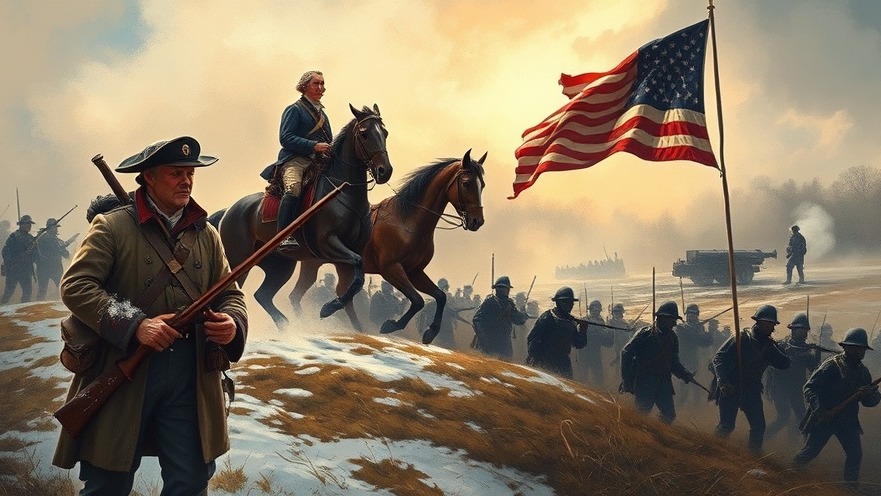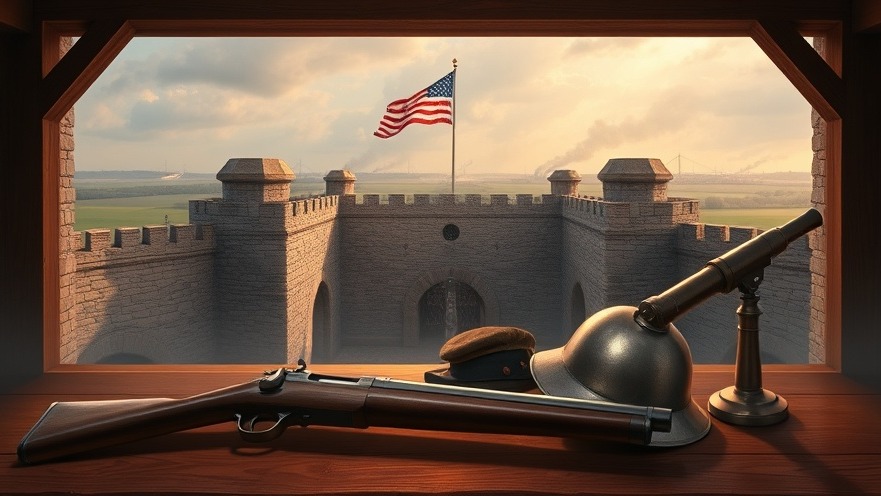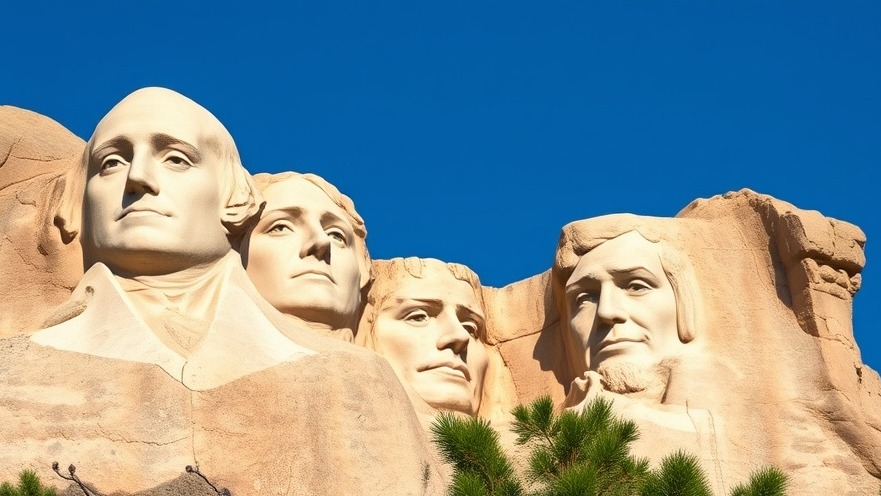
The Birth of a Nation: Unpacking the Revolutionary War
The American Revolutionary War was not just a conflict for independence; it was a profound transformation brought on by colonial discontent and the unyielding spirit of a nation on the rise. As we approach the 250th anniversary of this monumental event, it’s essential to reflect on how the war's early days set the stage for a new identity across a previously fragmented society. In this article, we take a closer look at the pivotal moments that defined the emergence of the United States, from the initial skirmishes to the eventual victory at Yorktown.
In 'The Revolutionary War in 43 Minutes with Garry Adelman', the topic delves into crucial moments of conflict and leadership that set the foundation for America's independence.
1775: The Shot Heard Round the World
It all began on April 19, 1775, when tensions between American colonists and British troops erupted into violence at Lexington and Concord. The phrase "the shot heard round the world" encapsulates the moment that ignited the revolutionary flame, and it marked the beginning of a relentless fight for freedom. The colonists, emboldened by their newfound unity, began to rally under the banner of independence, giving birth to a revolutionary spirit. Notably, it was at Fort Ticonderoga where Benedict Arnold and Ethan Allen led a successful capture of the fort, which provided crucial artillery needed for the burgeoning Continental Army.
The Role of Leadership: George Washington Takes Command
Despite the colonists' initial victories, they faced an uphill battle against one of the world's most powerful militaries. Enter George Washington, who emerged as a critical figure in leading the Continental Army. Washington's ability to unite disparate factions within the colonies played a vital role in forging a cohesive military strategy, even as he faced significant challenges, such as morale issues and lack of supplies. His leadership style, characterized by resilience and strategic foresight, would prove essential as the war transitioned into more significant engagements.
The Winter at Valley Forge: A Crucible of Transformation
Perhaps one of the war's most defining moments was the harsh winter spent at Valley Forge. While the conditions were brutal, this hardship shaped the American forces into a professional military unit under the guidance of foreign officers, notably Baron von Steuben, who implemented rigorous training. The experience at Valley Forge not only fostered solidarity but also highlighted the sacrifices made by soldiers committed to the revolutionary cause, setting the tone for resilience against all odds.
The Turning Tide: Victory at Saratoga
The victory at the Battle of Saratoga in 1777 is often considered a crucial turning point in the war. It was the first major victory that demonstrated the seriousness of American resolve and attracted the attention and support of France. This international support proved invaluable, allowing the fledgling nation to bolster its forces significantly. The ideological underpinnings of the conflict began drawing in foreign allies who saw the fight for liberty as a universal struggle against tyranny.
Yorktown: The Final Showdown
Ultimately, the war culminated at Yorktown in 1781, where British General Cornwallis found himself besieged by a combined American and French force. The American victory at Yorktown did not just signify the end of major combat operations; it symbolized the triumph of an idea—that a group of disparate colonies could unite for a common cause and emerge victorious against an imperial power. The eventual signing of the Treaty of Paris in 1783 marked the formal recognition of American independence and set in motion the creation of a new nation.
Reflection of a Shared Heritage
As we delve into the history of the Revolutionary War, it's essential to acknowledge the communal sacrifices that shaped concepts of liberty, equality, and governance. The lessons learned from that era remain relevant today, reminding us of the complexities of unity amid diversity. Each American generation has continued to fight to honor the ideals set forth by the Revolutionary heroes.
In summary, the American Revolutionary War was a pivotal moment in history, full of battles, strategic leadership, and the defense of an ideal. This incredible journey toward independence is not just a historical tale but a lesson in resilience and unity that resonates through time.
 Add Row
Add Row  Add
Add 




Write A Comment